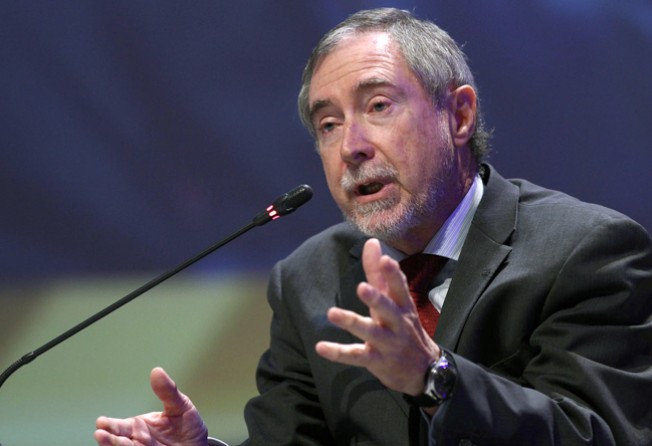Nuclear power popular despite Fukushima: OECD boss Luis Echavarri
Developing nations plan to build more plants to cut costs and emissions despite safety concerns in the wake of the Fukushima disaster in 2011

Interest in nuclear power has not waned since Japan's nuclear disaster 2½years ago because developing nations see it as an economical way to improve energy security and cut emissions despite safety concerns, according to an expert.
Luis Echavarri, director general of the Organisation for Economic Co-operation and Development's Nuclear Energy Agency, told the World Energy Congress that a survey by the intergovernmental organisation of industrialised nations found that 25 of its 34 member nations planned to build more nuclear power plants.
That is despite some nations, including Germany, Italy and Switzerland, having decided to phase out nuclear power after a powerful earthquake and tsunami triggered equipment failure and a prolonged release of radioactive material at the Fukushima nuclear power plant in March 2011.
Some 64 reactors were under construction globally before the disaster and all except those in Japan had continued construction, Echavarri said.
Samir Brikho, chief executive of Britain-based engineering and project management consultancy AMEC, said that although the number of projects in operation had fallen due to shutdowns, the number of units under construction globally had risen 10 per cent since the disaster.
"We can't ignore that nuclear will continue to be part of the [energy supply] equation for many decades to come," he said. "Once the global economic crisis is over in three to four years, we will see renewed interest."
Danny Roderick, chief executive of US-based nuclear technology and equipment provider Westinghouse Electric, said the company had eight units under construction and its order backlog suggested the figure would increase to more than 30 in five years.
"In the past six months, we have seen more interest in new plants globally than in the past three to four years," he said.
Much of the demand comes from the mainland as Beijing has set a target of having 58 gigawatts (GW) of installed nuclear power generating capacity and 30 GW under construction by 2020. Installed capacity stood at 12.6 GW at the end of last year. Other nations including the United Arab Emirates have also chosen to press ahead with their nuclear power programme.
Mohamed Al Hammadi, chief executive of Emirates Nuclear Energy, said the oil-rich nation was building four reactors, which would generate a quarter of the country's electricity when all were commissioned by 2020.
"With demand rising 9 per cent a year, we will need all sorts of energy," he said. "Nuclear is very economical compared to oil."
The fuel cost of nuclear plants is less than that of fossil-fuel-powered plants, according to some measures. The price of fossil fuels is typically more volatile than that of nuclear power. Nuclear energy can provide stable "base load" output compared with renewable energy like solar and wind power.
Modern nuclear plants have a designed operating life of 60 years, compared with 40 years for previous generation plants. That makes them more cost-effective.
Building a nuclear plant took five years now, compared with 10 years in the 1980s, Roderick said.
The commissioning of the world's first third-generation nuclear plant in Sanmen, Fujian province, based on Westinghouse's AP1000 technology is about a year behind schedule.
Roderick said: "All energy projects at some point go a little behind schedule and over-budget. We are seeing slippage in months, not years. We are working aggressively to bring it online by the end of next year. Safety is our priority."
Wang Jun, chief engineer of State Nuclear Power Technology, which is responsible for negotiations on the importation of new nuclear technology, said the Sanmen project, the first of its kind to be commercialised, had faced "some challenges".
He said that after the Fukushima disaster, Westinghouse had performed safety checks on the project, which was validated by State Nuclear Power Technology's independent review. "If the Fukushima scenario happens with AP1000, we can say there will be no large release of radiation," he said.
Some mainland nuclear experts said Beijing's "rush" to build the world's first AP1000 plant was risky because the technology had not been proven commercially.